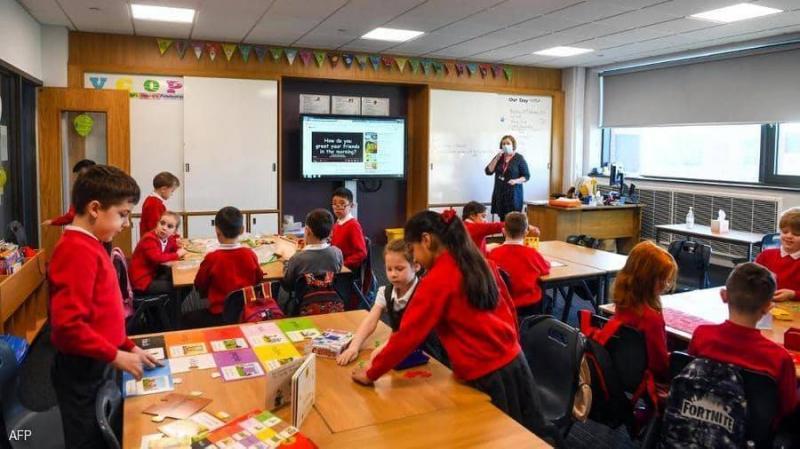The Union of Parent Committees in Private Schools expressed concern in a statement regarding the educational decline "due to the forced closures over the past two years and parents' feeling that some schools are not adequately addressing this issue, particularly in official certificate classes." They urged educational institutions to prioritize compensating for the educational loss for the remaining period of the current academic year.
The Union highlighted that "the financial situation of parents, schools, their teachers, and staff is very alarming regarding the closed loop that the components of the educational family find themselves in. Parents are unable to withdraw their funds from banks, while these banks refuse to pay teachers and educational institution employees' salaries unless cash is deposited with them, forcing these institutions to demand cash payments from parents who cannot secure the required amounts." They warned of an "imminent collapse of the educational sector that would undermine the last remnants of the country's revival. If we lose education, we lose our children and the future."
The Union noted that "signs of tuition increases are beginning to appear on the horizon for the upcoming academic year, potentially leading to a significant rise that most parents may not be able to bear due to their limited capabilities caused by economic and financial collapse and excessive inflation, which could lead to a social catastrophe affecting Lebanon's future, namely the collapse of the private educational sector that encompasses about 70 percent of learners."
They called on all concerned parties and stakeholders to "stand by parents and students by having the state, in all its components, take on the responsibility of providing material support to families by covering part of the tuition fees, and for the state to seek the necessary funding for the private educational sector, especially for the families of students from donor sources."
The Union demanded the Parliament to "pass a law similar to the student dollar law, allowing parents who have deposited their money in Lebanese banks to withdraw their funds at the same exchange rate set by the law for the families of students studying abroad, adhering to the principle of equality among citizens, and that the Central Bank bear its responsibilities towards the private educational sector as it is entrusted with social stability and is responsible for national currency stability, especially since education is a fundamental human right. There should be a circular issued wherein the transfer of funds from parents' accounts to schools' accounts is treated as if it were cash (fresh)."
They also called for "the launch of a campaign to finance and modernize the private educational sector, starting with requesting private educational institutions to provide accurate and transparent data, as it is the entry point for any assistance requests from donor bodies; without it, we will not achieve the desired goal. A committee has been formed from within the Union to work and urge the stakeholders to coordinate among themselves and provide all necessary facilitation to the donors to access the information that will enable them to provide the desired assistance."
While confirming that they "will work to form a committee consisting of schools, parents, and teachers for the same purpose," they hoped for "swift action before it is too late, as education is a right for all, and there is a real and imminent danger whose signs are beginning to show, warning that education in Lebanon may become exclusive to the wealthy."




